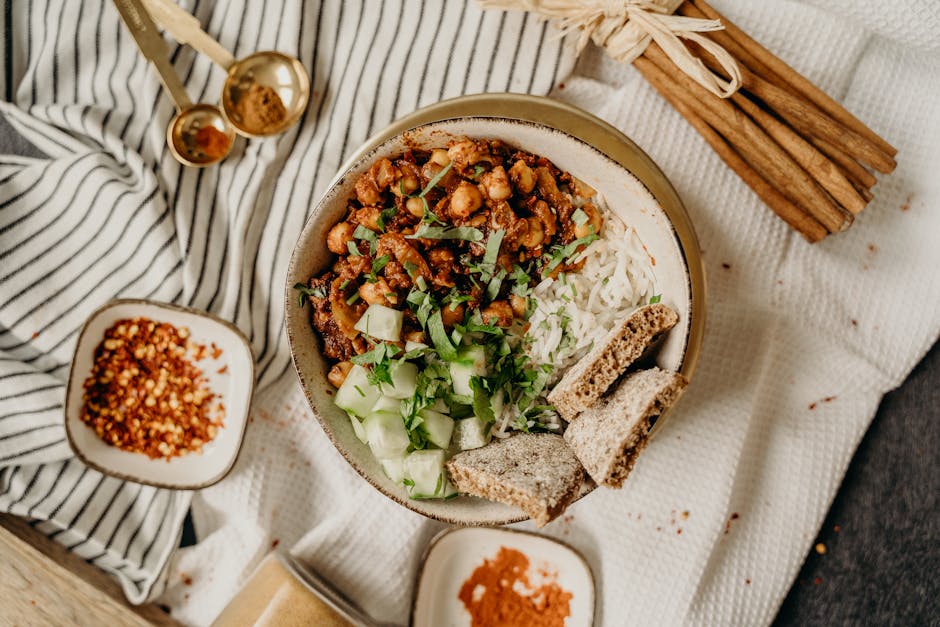Food waste, a pervasive issue impacting individuals, households, and the planet, is often associated with the culinary realm. From the supermarket to the kitchen, numerous opportunities exist to reduce food spoilage and discard. This article delves into practical strategies to minimise food waste, offering insights specifically tailored to the cooking and recipe-making process.
A Significant Slice of the Problem
Significant quantities of edible food are discarded annually, representing a substantial environmental burden. This encompasses not only surplus meals but also ingredients that, with proper handling and preparation, could be transformed into delicious and nutritious dishes. Understanding the root causes of food waste in cooking is the first step towards implementing effective solutions. Often, poor planning, inadequate storage, and improper recipe execution contribute to this problem. By adopting smarter practices throughout the cooking process, significant reductions in food waste can be achieved.
Strategic Planning: The Foundation of Waste Prevention
Proactive planning forms the cornerstone of any effective food waste reduction strategy. Prioritising a detailed inventory of available ingredients before venturing into the kitchen is paramount. Referencing existing recipes, or crafting new ones tailored to the ingredients you have on hand, is crucial. Avoid impulse purchases or buying in excess, ensuring your recipes align with the quantities you expect to use. A well-stocked pantry and refrigerator, brimming with easily identifiable ingredients, enables you to plan meals that efficiently utilize what’s available.
Recipe Refinement for Reduced Waste
Beyond planning, understanding and adapting recipes to minimise leftovers is a potent strategy. A keen eye on portion sizes helps prevent overcooking. Modifying recipes to incorporate leftovers into subsequent meals is vital. For example, leftover roasted vegetables can be transformed into a flavorful soup or pasta sauce. Similarly, cooked grains can be used to prepare hearty salads or pilafs.
Enhancing Ingredient Management and Storage
Efficient storage is a key factor in preventing food spoilage. Storing food properly extends its lifespan. Refrigerating perishable items promptly at the correct temperature helps maintain their quality. Freezing excess cooked ingredients offers an excellent way to preserve food for later use in a variety of dishes. Utilizing airtight containers prevents moisture loss, while understanding the specific storage requirements of different foods will ensure longevity and maintain freshness.
Recipe-Specific Strategies
Different recipes lend themselves to various waste-reduction strategies. When planning a large batch of cookies, for instance, consider portioning and freezing individual cookies to prevent waste after the initial consumption. When preparing a substantial stew, freeze portions for future meals or utilize leftover broth to create a flavorful soup. Consider making sauces in larger quantities, then portioning and freezing for future use in various dishes.
Cultivating a Waste-Conscious Mindset
Adopting a mindset focused on efficiency and mindful consumption will greatly impact food waste. Cultivate an awareness of the expiration dates and freshness of ingredients before utilizing them in cooking. Embrace improvisation, and be ready to adapt recipes based on the availability of ingredients. This flexible approach can transform leftover components into novel dishes.
Utilizing Leftovers and Reducing Food Waste
Leftovers represent an untapped reservoir of culinary potential. Transforming yesterday’s dinner into something new can be accomplished with creativity. For example, leftover roasted chicken can be incorporated into salads, sandwiches, or even a satisfying chicken pot pie. Leftover pasta can be transformed into a hearty and flavourful pasta salad or incorporated into a delightful casserole dish. This proactive approach turns discarded food into a fresh and exciting meal.
Beyond the Kitchen: Educating and Engaging Others
Sharing these tips and strategies with family, friends, and colleagues can amplify their effectiveness. Organize cooking demonstrations, workshops, and group initiatives. These efforts contribute to a broader awareness of food waste prevention.
Conclusion
Preventing food waste in cooking is not merely about minimizing losses but also maximizing resource utilisation and reducing environmental impact. By strategically planning meals, adjusting recipes, improving ingredient management, and embracing a proactive mindset, substantial progress can be made in mitigating the issue of food waste within the culinary world. This mindful approach not only benefits the environment but also enhances the effectiveness of our culinary practices, fostering a more sustainable and efficient approach to food preparation and consumption.






